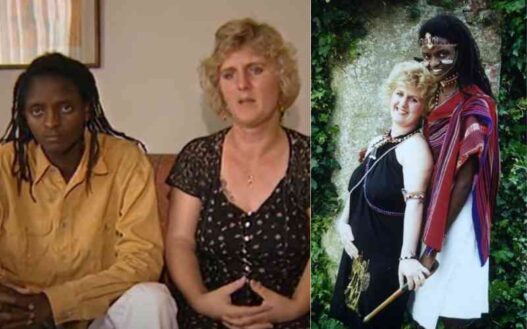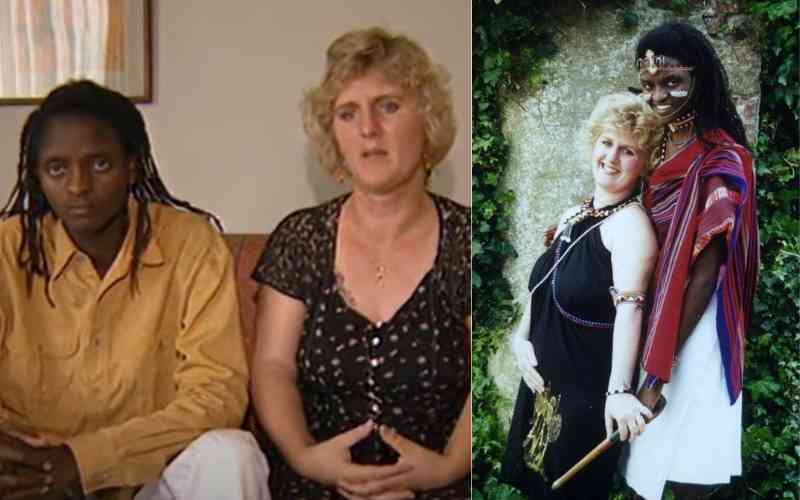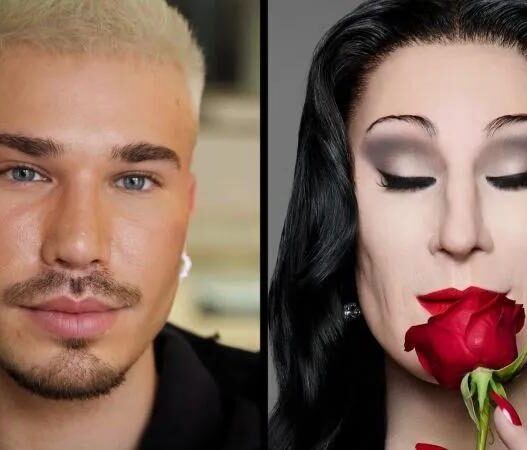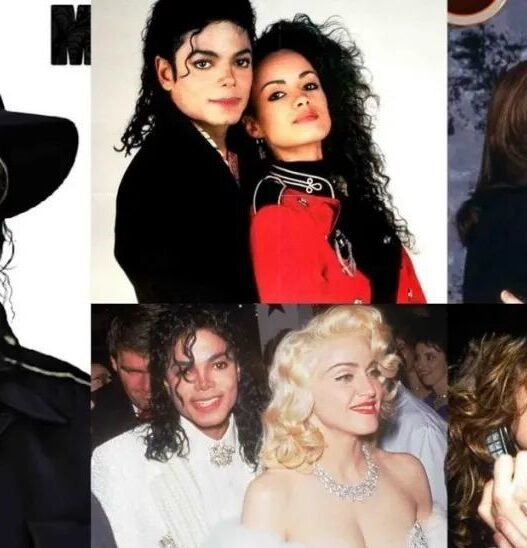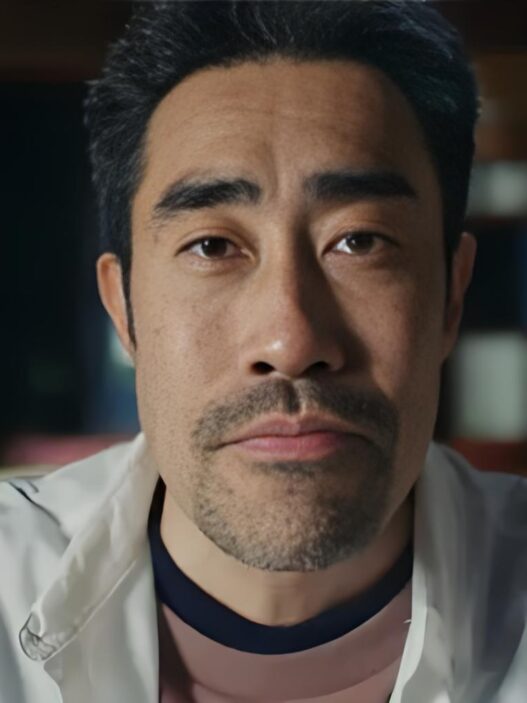Is love at first sight real? For British woman Cheryl Thomasgood, it absolutely was.
Back in March 1994, Cheryl traveled to Kenya for a vacation. She was captivated by the raw, untamed beauty of East Africa. One evening, her hotel hosted a cultural performance by the Maasai—a semi-nomadic tribe known for their distinct traditions.
Among the singing and dancing warriors, one tall man caught Cheryl’s eye. His presence was magnetic. By the end of the show, she realized she had fallen completely for him.
She eagerly struck up a conversation and learned his name was Daniel Lekimencho. At just 24 years old, he was a proud Maasai warrior—ten years younger than Cheryl.
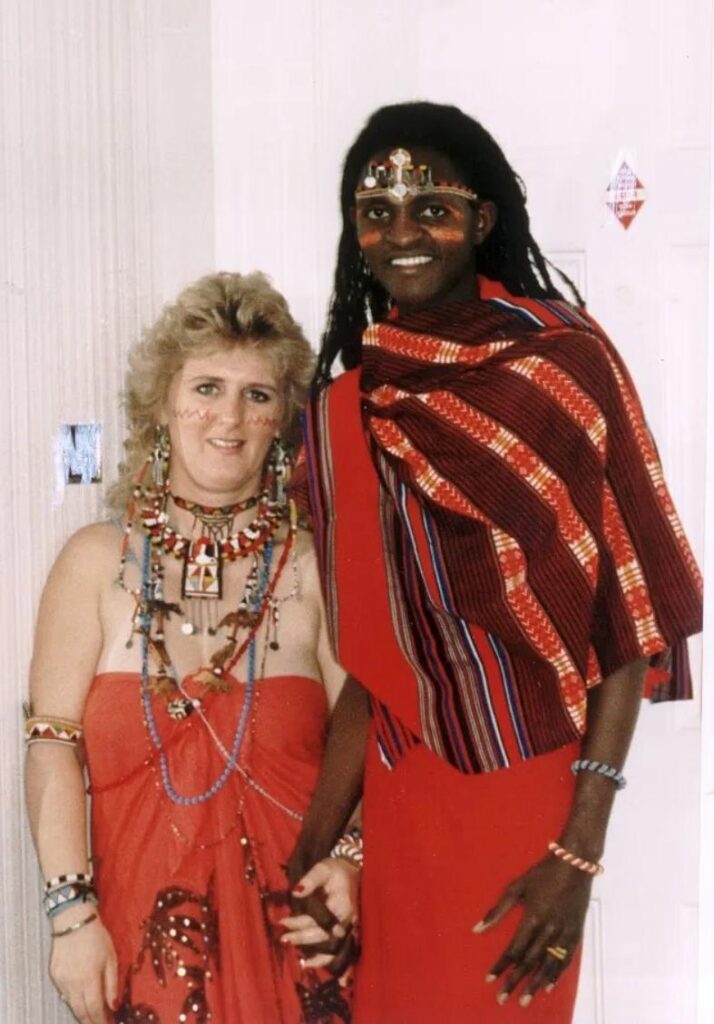
The Allure of the Maasai Culture
As they spoke, Cheryl became fascinated by Daniel’s world. The Maasai lifestyle was unlike anything she knew. They live a nomadic life, herding cattle, goats, and sheep—the backbone of their economy and diet. Their food mainly consists of meat, milk, and sometimes even cow blood.
Daniel wore intricate beads and sported finely braided hair—a symbol of his warrior status. Ordinary Maasai men keep their heads shaved.
The Maasai have a long history of being formidable warriors. In the past, lion hunting was considered a rite of passage, though it has been banned in modern times due to conservation efforts.
Despite modernization pressures from European colonization and disasters like smallpox and cattle plague in the late 19th century, the Maasai have retained much of their traditional culture. Today, they supplement their income by performing for tourists or engaging in small-scale farming.
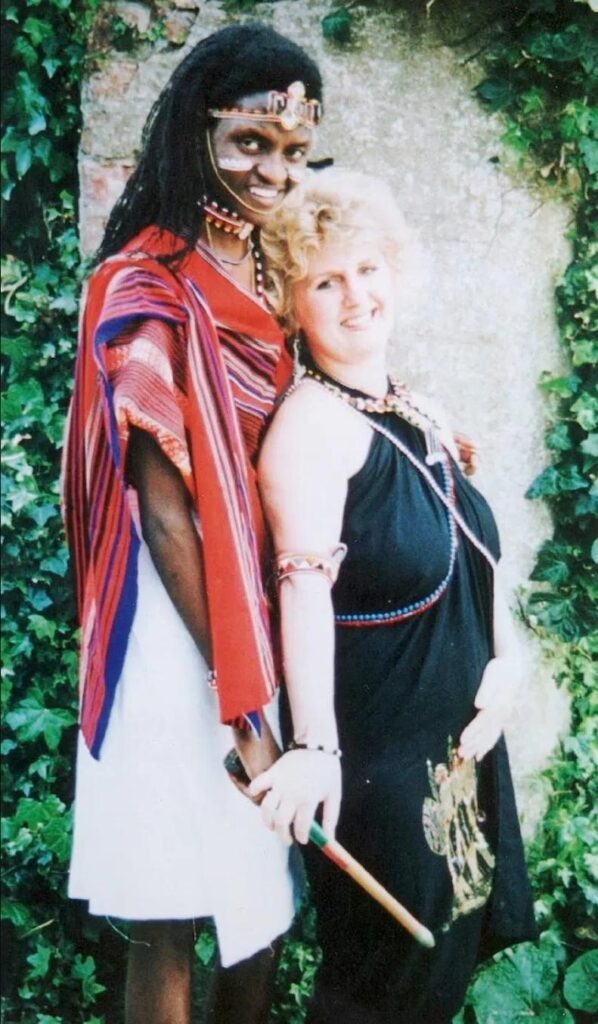
To Cheryl, everything about the Maasai felt exotic and deeply spiritual. Even the tribe’s controversial practices like female genital mutilation—heavily criticized by human rights groups—were viewed by her through the lens of cultural curiosity at the time.
A Radical Life Decision
Cheryl quickly felt a deep connection. “He was the first man who truly listened to me,” she recalled. “He wasn’t obsessed with material things. His world felt so pure.”
There was only one small problem—she was already married in the UK. In fact, Cheryl had two previous marriages and was a mother of three.
Despite this, when her three-week Kenyan vacation ended, she made a shocking decision. She flew back to the UK, divorced her husband, gave up custody of her children, quit her job, cut ties with friends and family—and moved permanently to Kenya to live in Daniel’s Maasai village.
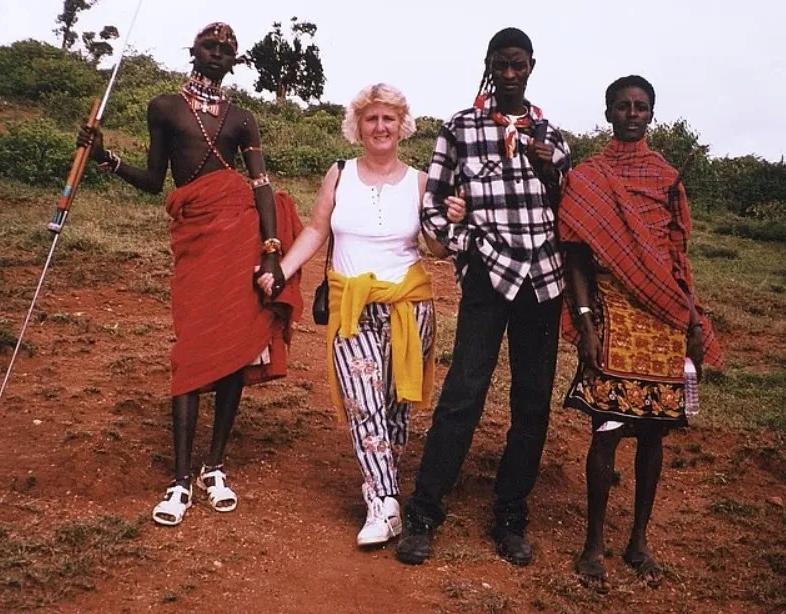
From Middle-Class Comfort to Tribal Life
Life in the Maasai village was a brutal contrast. Gone were the comforts of suburban England. Cheryl adapted to a lifestyle of hunting, cooking over open fires, sleeping on goat skins, and drinking cow’s blood mixed with milk—a Maasai tradition.
Her decision shocked the UK media. Newspapers, talk shows, and tabloids exploded with the story of the middle-class British woman who gave up everything for an African warrior she barely knew. Most people were baffled. Why would anyone do this?
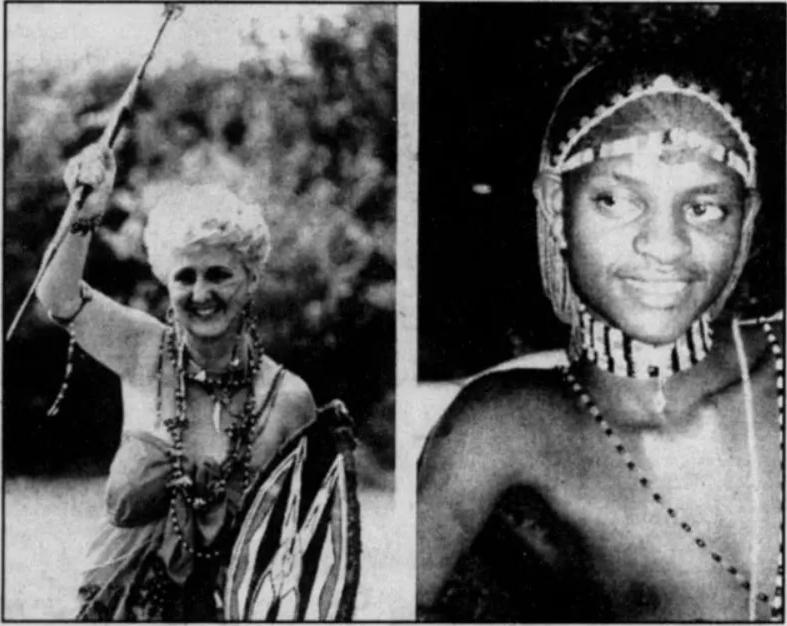
Back to the UK—A New Chapter
Surprisingly, this extreme lifestyle didn’t last long. By 1995, less than a year later, Cheryl and Daniel returned to the UK. They married on Valentine’s Day.
In 1998, their daughter, Misti, was born. The couple posed for a family portrait that seemed straight out of a fairy tale—the British woman and her Maasai warrior, united against all odds.
But life isn’t a fairy tale.
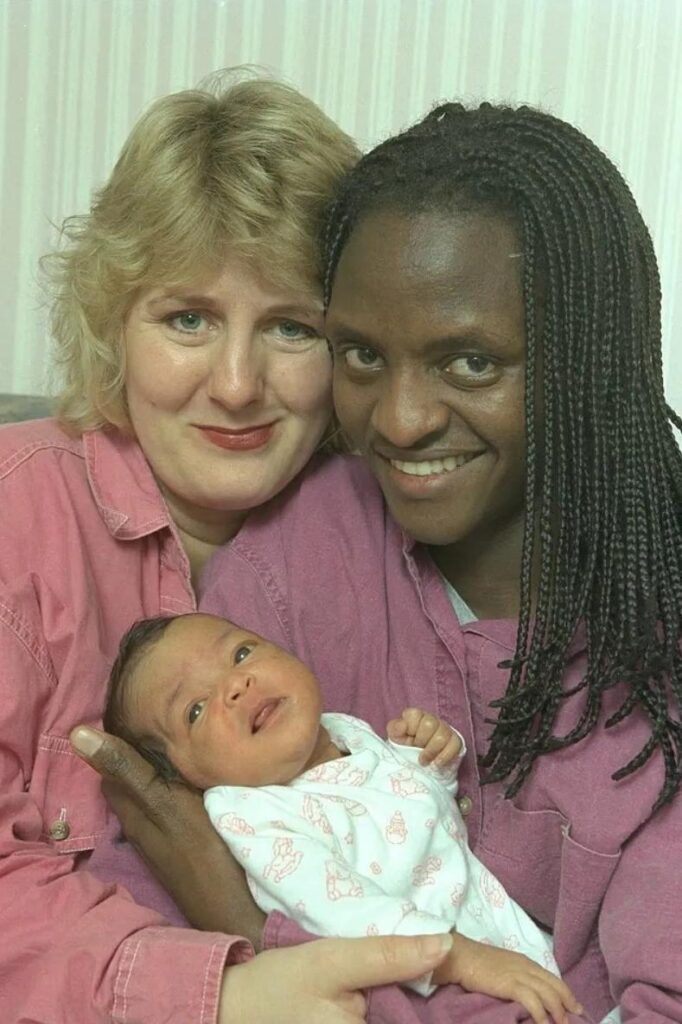
The Fairy Tale Crumbles
Within a year of that family photo, the marriage began falling apart.
“Daniel changed. Completely,” Cheryl said. “I thought I married a spiritual Maasai warrior. Instead, he became like Victor Meldrew—a miserable, grumpy old man from British sitcoms.”
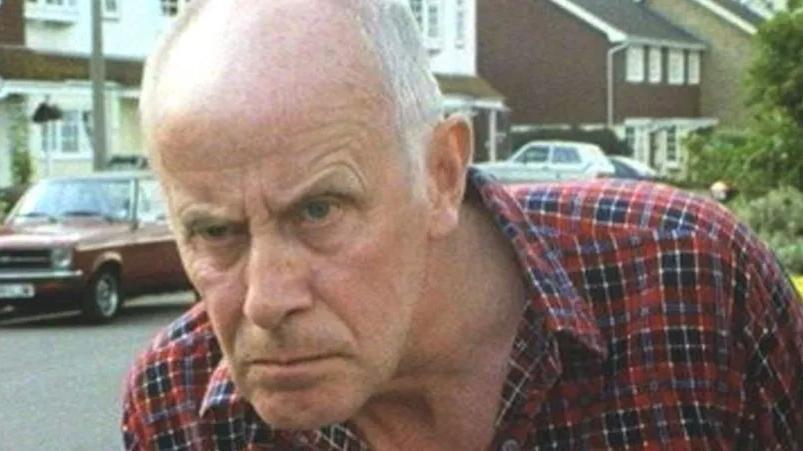
He became obsessed with money, constantly complaining and arguing. Cheryl accused him of caring only about sending money back to his relatives in Kenya, demanding expensive clothes, and pushing for a bigger house.
His only moments of joy came when he danced Maasai warrior dances in their garden, leaping as high as he could, pretending to prepare for battle. The kids loved it, but Cheryl quickly grew tired of the spectacle.
Was It All an Illusion?
Looking back, Cheryl admits that her belief that Maasai people were “uninterested in material things” was likely naive. In Maasai culture, wealth is traditionally measured by how many cows, wives, and children a man has.
Daniel may have appeared humble only because he hadn’t yet been exposed to Western materialism. Once in the UK, he dove headfirst into it.
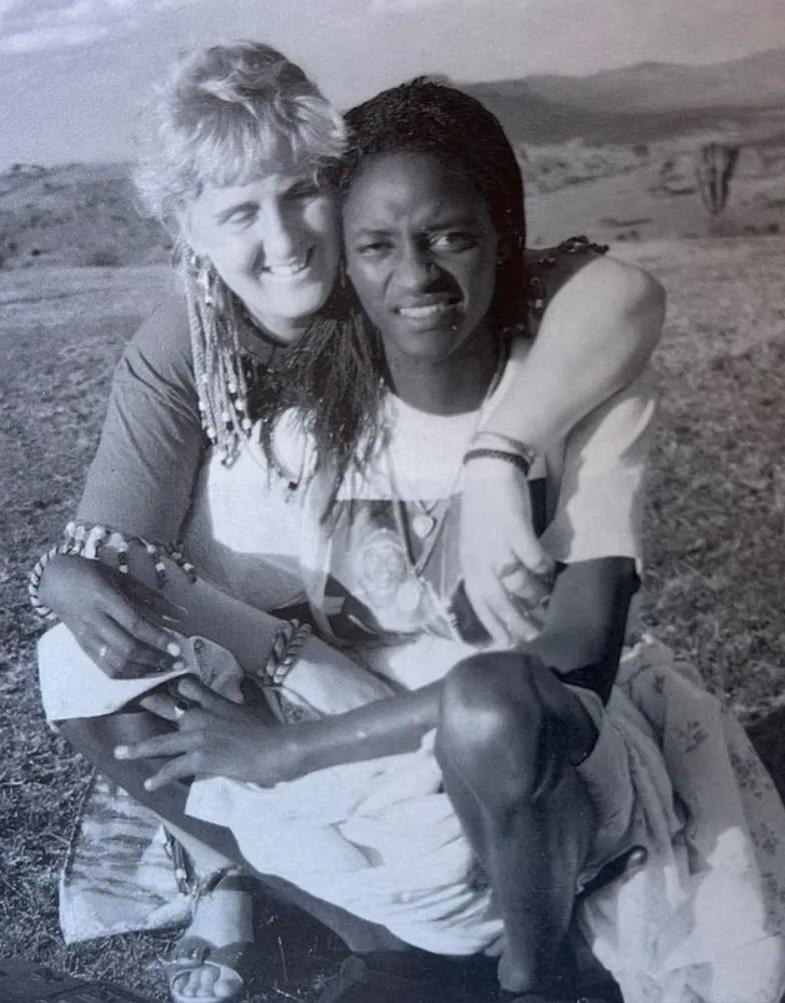
“I started wondering if he ever really loved me,” Cheryl confessed. “Or was I just his ticket out of poverty? It felt like everything had to revolve around what he wanted—and what he wanted kept growing.”
“He didn’t care about me. I moved mountains for him. But he wouldn’t lift a finger for me.”
Public Scrutiny and Inner Struggles
To make matters worse, half the UK was watching their story unfold. The public mocked her, predicting that the marriage would never work. On top of the marital breakdown, Cheryl felt trapped by her own determination to prove the world wrong.
Even though the cracks appeared early on, she clung to the marriage until 1999, unwilling to admit defeat.
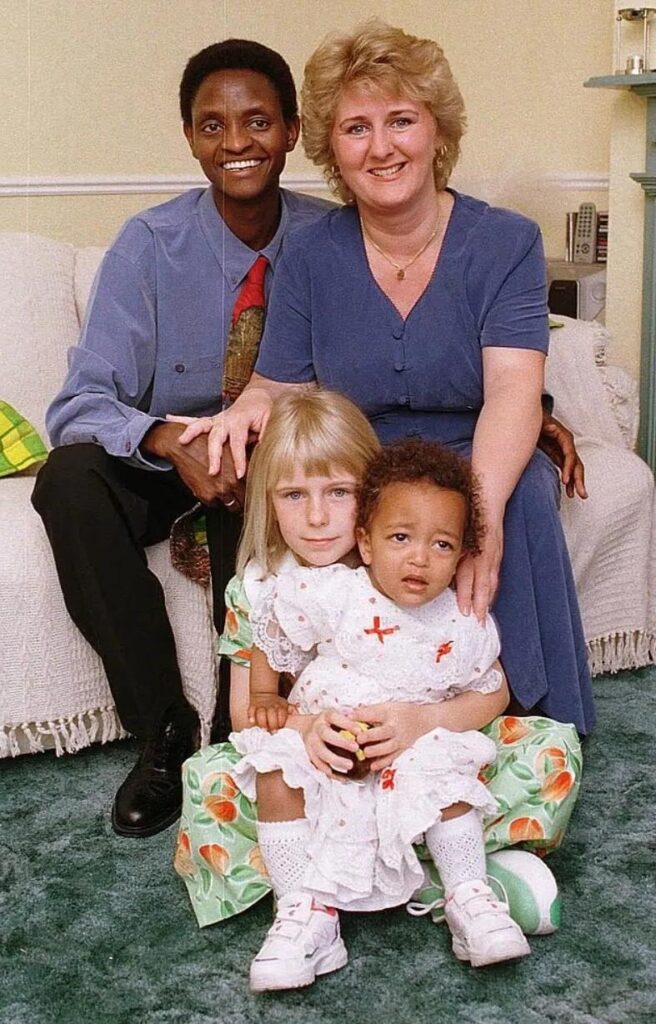
A New Beginning… Again
After the divorce, Cheryl moved with her daughter Misti to a quiet seaside town in Somerset. Now 65, she lives a relatively peaceful life. Thankfully, the internet wasn’t as invasive back then, so few locals know her past.
She has never seen Daniel again—and seems more than happy to keep it that way.
Hidden Wounds Behind the Romance
In an emotional interview, Cheryl revealed the deeper reasons behind her impulsive decision. Her childhood was filled with trauma, including years of sexual abuse and neglect by alcoholic parents.
Before traveling to Kenya, she was suicidal and desperate for peace.
“Daniel was like a lifeline to me. I was drowning, and he was the only thing I could grab.”
She explained, “I thought I was in love. But really, I was running from my own broken life.”
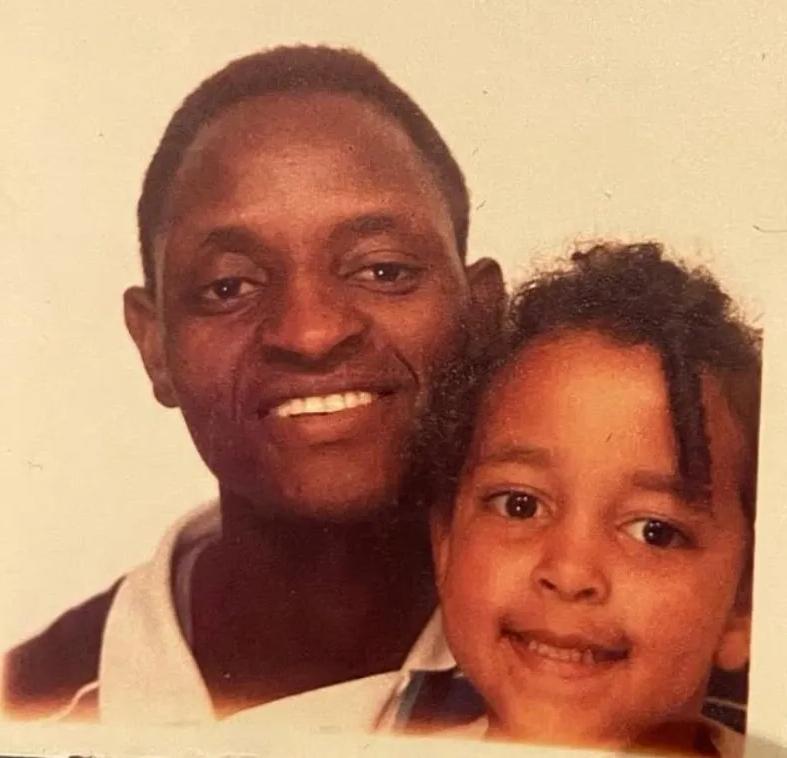
Where Are They Now?
Their daughter, Misti, is now 27, a smart and articulate young woman. She has maintained contact with her father. Recently, they even took a photo together.
Daniel never returned to Kenya. He now works at a supermarket in the UK, finding the comforts of British life preferable to the harsh realities of the Maasai village.
Sadly, his side of the story remains untold. No media has ever interviewed him.
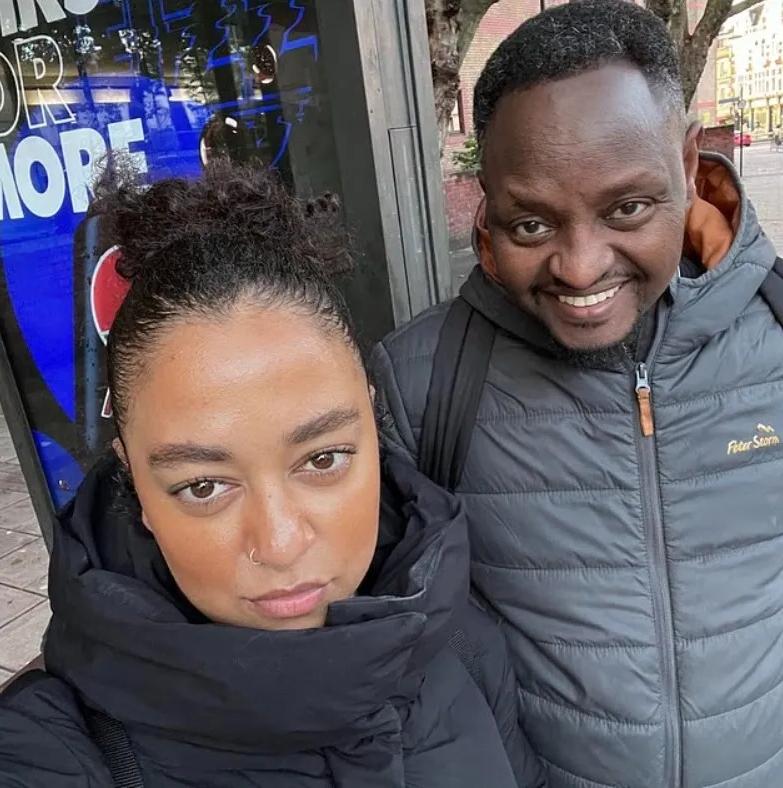
The Bigger Lesson
This story is more than just about love gone wrong. It’s a reminder that no person can heal someone else’s inner wounds. True healing comes from within.
Cheryl once believed Daniel saw her as a meal ticket. But in truth, she may have seen him as her free therapist—a way to escape her own pain.
Their relationship was built on fantasy, desperation, and misplaced expectations. Its failure was inevitable.







